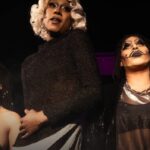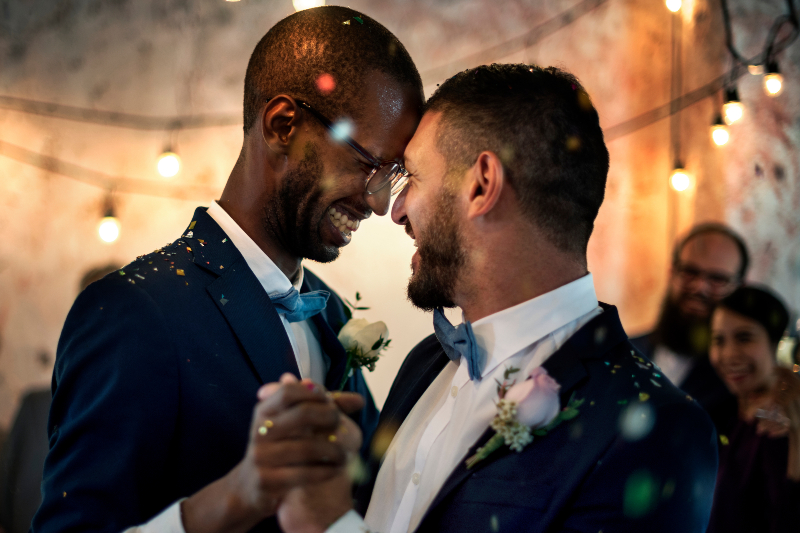In 2003, Belgium legalised same-sex marriage – becoming the second country in the world to do so, after the Netherlands.
The law that delivered marriage equality was passed without any major upheaval in Belgian society – it was a moment of relative consensus in Belgian society.
Let’s take a look back at what was an important step forward for the LGBTQIA+ community of Belgium.
The Rainbow Government
In 1999, the Belgian elections led to the formation of a so-called “rainbow” government – led by the Flemish liberal, Guy Verhofstadt.
This coalition led by Verhofstadt brought together – for the first time – Liberals, Socialists and Greens, ending the long-standing dominance of the Christian Democrats.
The relegation of the Christian Democrats to a minority opposition opened the way for the legalisation of marriage for same-sex couples.
20 years of waiting
Prior to the legalisation of same-sex marriage, Belgian LGBTQIA+ organisations fought for decades for equal rights for all citizens.
In Belgium, the first Gay Day took place on 18 March 1978. Held in Ghent, the event was organised by the Rooie Vlinder group – a left-wing feminist group that took an extremely militant approach.
An official Pride event was first held in Brussels in 1996.
At the legislative level, it was not until the year 2000 that the first step forward was taken with the introduction of a law validating legal cohabitation for all couples – including same-sex couples.
In 2001, Verhofstadt’s rainbow government announced that a bill that would secure marriage equality for same-sex couples was being drafted. It was the then Minister of Justice, Marc Verwilghen, who formally announced the bill on 28 May 2002.
Voting by the Federal Parliament on the proposed legislation was scheduled for 30 January 2003. With majority support, it seemed that everything was in place to deliver marriage equality for Belgium.
However, there were some unexpected obstacles that had to be navigated. Firstly, the Council of State issued an unfavourable opinion on the proposed text – on the basis that “only heterosexual unions are likely to give birth to children”. Secondly, a bloc of representatives within the coalition decided that the question of marriage equality was an ethical issue and so would allow its members a conscience vote on the legislation, rather than being required to follow the government’s policy.
On the day of the vote – Thursday, 30 January 2003 – the debates primarily revolved around two radically different conceptions of marriage. Those opposed to the legislation advocated that marriage is all about having children, while those in favour of the legislation advocated that marriage is about building a life together.
A divided vote
The exact breakdown of the vote on the day is quite complicated, with religion playing a key role in how different representatives cast their vote.
From the bloc of 10 French-speaking Christian representatives, four did not attend the session, two voted against, and four abstained.
In contrast, the Flemish Christian bloc mostly voted in favour of the legislation – on the basis that it did not extend adoption rights to same-sex couples.
The Flemish Liberal bloc voted unanimously in favour of the legislation, whereas the French Liberal bloc were divided – six in favour and eight against.
The Vlaams bloc unanimously opposed the legislation, whereas the Volksunie bloc were unanimously in favour.
The Socialist and Green representatives were the strongest supporters of the proposed legislation. Representatives such as Karine Lalieux and Zoé Genot spoke at length about the principles of anti-discrimination. Their support brought with it the votes of 53 representatives.
At 6:13 PM, the debate ended. The final tally of votes was 91 in favour, 22 against, and 9 abstentions.
The legislation to amend the Civil Code and deliver marriage equality to same-sex couples in Belgium had been adopted by the Federal Parliament.
Ensuring everyone is included
The marriage equality vote of 2003 was an important step forward for the LGBTQIA+ community in Belgium but it wasn’t the end of the road.
Because not every country around the world has embraced marriage equality, a same-sex marriage celebrated in Belgium will not necessarily be recognised in other countries. This can have important legal consequences – for example, in terms of the recognition of a marriage contract and the management of a joint estate.
Additionally, the legislation that was passed in 2003 did not address some of the complications of marriages involving non-citizens. That was resolved in 2004 when the scope of the law was expanded so that – provided one of the spouses has lived in Belgium for at least three months – all couples can be married in Belgium, regardless of the law in a person’s country of origin.
Beyond marriage equality
The vote in favour of marriage equality in 2003 is a milestone worthy of celebration. We owe it to the generations that came before us to recognise the work that was required to make that vote a reality.
Twenty years have passed since Belgium embraced marriage equality and much has happened, but there is still more work to do.
We can’t rest on our laurels. We owe it to the generations that follow us to ensure that we give them plenty to celebrate in the years ahead.
You may also like
-

Ten Years of Balkan LGBTQIA: A Decade of Fighting Borders, Discrimination and Silence
Created in Brussels by volunteers from across the Balkans, Balkan LGBTQIA has spent ten years
-

Queens of the South: When Nice Turns Carnival into Queer Celebration
On 27 February 2026, Place Masséna in Nice will shimmer a little brighter. Lou Queernaval,
-

Safer on Paper, Not in Reality”: ILGA Warns of Rising Anti-LGBTQIA+ Violence in Belgium
Belgium still ranks among Europe’s most protective countries for LGBTQIA+ people on paper – yet
-

“March Is for the Queers”: Why You Should Put Queer March Ghent 2026 on Your Radar
Every March, Queer March turns Ghent into a month-long celebration of queer life, resistance, and
-

Les Peaux de Minuit: A BIPOC Drag Collective Shaking Up Brussels Nights
Brussels drag is changing — and it’s Black, brown, queer and unapologetic. Founded in January 2023, Les

